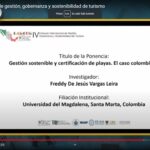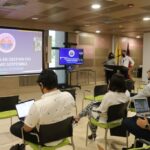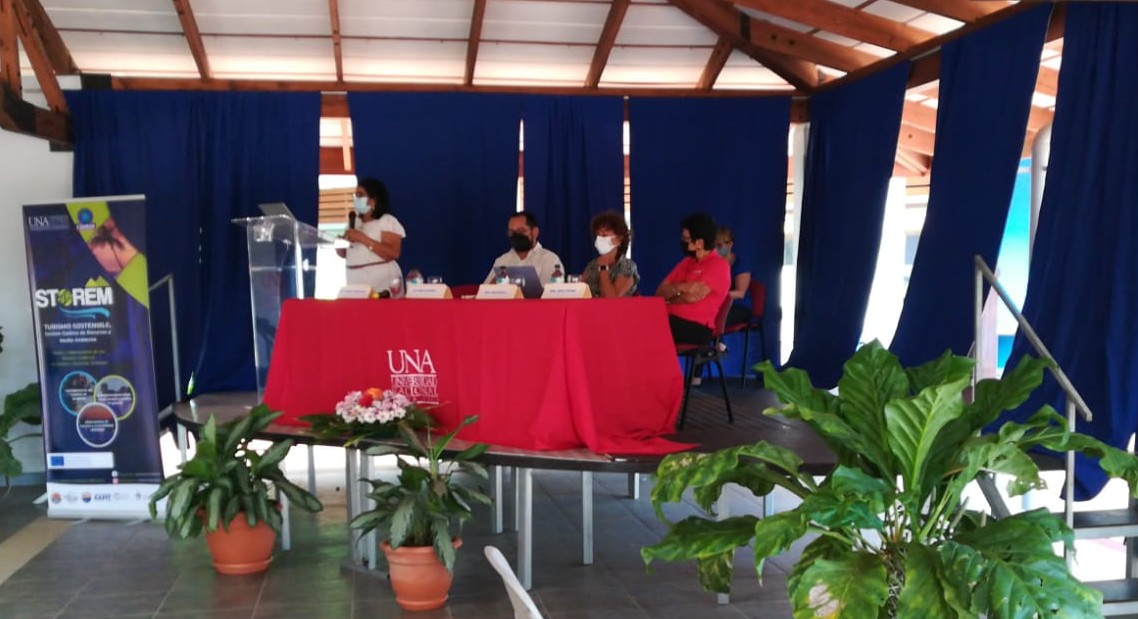The Chorotega Regional Campus and the Nicoya Campus led the Capacity Development Workshop within the framework of the STOREM project, which took place from November 25 to December 1, 2021. The workshop addressed issues related to sustainable tourism, challenges and capacity building.
Private and public actors in the Latin American and Caribbean region express the need to develop skills that are useful for the proper management of the natural environment, in the face of climate change threats and other risks that affect the coastal zone. The development of new skills in sustainability issues will eventually improve socio-economic development in the Latin America and Caribbean region, and will equip academics, tourism professionals and administrators. These activities will support the development of an enabled market aware of the need to provide continuity to STOREM’s academic programs and to prioritize environmental resource management and sustainable tourism.
The workshop was developed in two parts. The first part had two objectives: a) Evaluation of the design process of the master’s program, in which an exchange of information was carried out between the authorities of the Chorotega Regional Campus, the national project team of the STOREM project and the international coordination team; and b) Recognition of the territory where the master’s program will be implemented. As part of the recognition of the territory, four guided visits were scheduled with the aim of publicizing different experiences in the territory: Monte Alto Protective Zone, Hojancha; the El Toledo Agro-ecological Farm; Mangrove recovery sites in the Tempisque River; and Barra Honda National Park.
The second part of the workshop had the objective of executing the development of capacities on the topics of the new Master’s Degree in Tourism and Sustainable Development, for which eleven conference presentations were held. Topics addressed in the conferences presentations included: Hospitality; Maps, spaces and landscapes; Women and shea production; Success factors in female rural tourism entrepreneurship in Costa Rica; Protected Wildlife Areas and Ecotourism; and Wetlands, among others.






